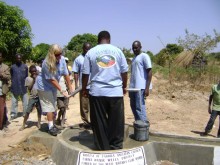Environment & Sustainability
Blog posts on environment & sustainability at Down to Earth Organic and Natural.
Cow manure, a source of green energy
There is a growing trend to use cows as a solution for reducing our dependence on fossil fuels. Cow dung, or manure, is being used to provide electricity in Kansas, where cows outnumber people two to one. [1] In a demonstration project, manure from a cattle feedlot will be used to power 30 nearby homes. Over the course of a year, just one cow's manure contains the same amount of energy found in 140 gallons of gasoline. The manure can be turned into gasoline, or in other farmland states, chicken and turkey droppings are being directly burned in coal-fired plants.
Seventh Generation TV ad
Seventh Generation have a new ad for their environmentally safe cleaning products.
See their YouTube Channel
https://www.youtube.com/user/SeventhGeneration#p/c/2AAC7791F096C6E7
Solar farm helps reduce Hawaii’s carbon footprint
A new 500 kilowatt solar farm in Kona will power 250+ homes on the Big Island, reducing oil imported to Hawai’i by 2,000 barrels annually. The concentrating solar power collectors, which are located at a 4 acre farm in the Natural Energy Laboratory of Hawai'i in Kona, are twice as efficient as photovoltaic panels, and cost less to manufacture.
Vegetables not as nutritious as they were 40 - 50 years ago
The following if from Natural Foods Merchandiser's blog: Store-bought vegetables are not as good for you as they were 40-50 years ago. According to the USDA, fruits and vegetables were packed with far more nutrients back then than they are now. Experts attribute the nutritional drop to hybrid breeding of crops, designed more for size and color and ability to survive transport, than nutritional value.
Down to Earth in Africa?

Sarah, Our Kahului store manager sent me an email the other day saying "a while back we donated a gift card to a woman named Jacqueline who runs a group called Carina Water Wells. They put up drinking water well in Tanzania.
Bottled water banned in move to protect environment
Bottled water is coming under even more pressure following the action of a small Australian town to ban sales of bottled water. Bottled water sales, once a major growth industry, has slowed considerably as people have considered the adverse environmental impacts of the plastic bottles, production costs, and trucking and transportation involved. It is cheaper and more environmentally sound to properly filter tap water. The following is from the Associated Press story:
Bulk is green
The following is from Progressive Grocer magazine: A recent study conducted by the Bulk Is Green Council confirms what the Little Rock, Ark.-based advocacy group is seeking to advance with consumers: that retail prices of bulk foods vs. their packaged counterparts are an average of 35 percent lower. Indeed, bulk foods were lower for all of the 16 foods compared, with savings ranging from 3 percent to 96 percent. Additionally, the majority of bulk foods compared in the study were organic while their packaged counterparts were often not.
Electric cars, are they the best way to reduce greenhouse gases?
Front page news today in the Honolulu Advertiser is that "a private company that state officials hope will put Hawaii on the road to the widespread use of electric vehicles expects to begin installing infrastructure here in about six months."
The company plans to install "between 20,000 - 30,000 recharging stations that can be used by electric vehicles in homes, office buildings, parking lots and public and private facilities."
The real cause of climate change
In the news today is an article about the Obama administration issuing warnings on climate change in what was called the "grimmest, most urgent language on climate change ever to come out of any White House." The scientists softened the message by saying "it's not too late to prevent some of the worst consequences by acting aggressively to reduce emissions of heat trapping gases, principally carbon dioxide from the burning of fossil fuels."
The original predatory lender?
There was a great comic in the Honolulu Advertiser today, June 16, 2009, with the caption "The original predatory lender" with a picture of the earth with a big sign on it saying "Fine Print: failure to curb emissions in time may result in draconian climatological adjustments", and an inhabitant of the earth looking at the sign in puzzlement thinking "what the?".
Pagination
- First page
- Previous page
- 1
- 2
- 3
- 4
- 5
- 6